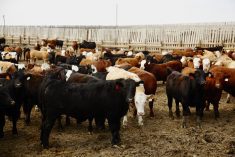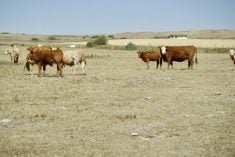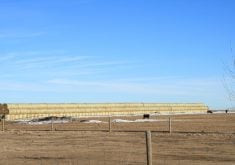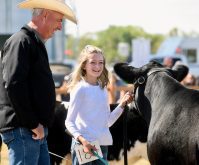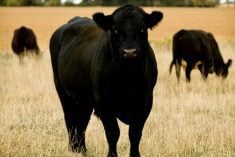The last two months have seen Canadians hunkered down at home — everyone doing their part to help flatten the curve. Uncertainty is everywhere in the world around us and the COVID-19 pandemic has had an impact on every Canadian and industry from coast to coast to coast.
This uncertainty has led to Canadians stocking up on the essentials, from toilet paper to hand sanitizers to non-perishable food and Canadian beef. Seeing the grocery store shelves bare has shown just how vulnerable our food system is to disruptions such as COVID-19. We rely heavily on our front-line workers including truck drivers, grocery store workers and employees at Canada’s beef processing plants to get our products to consumers’ tables.
Read Also
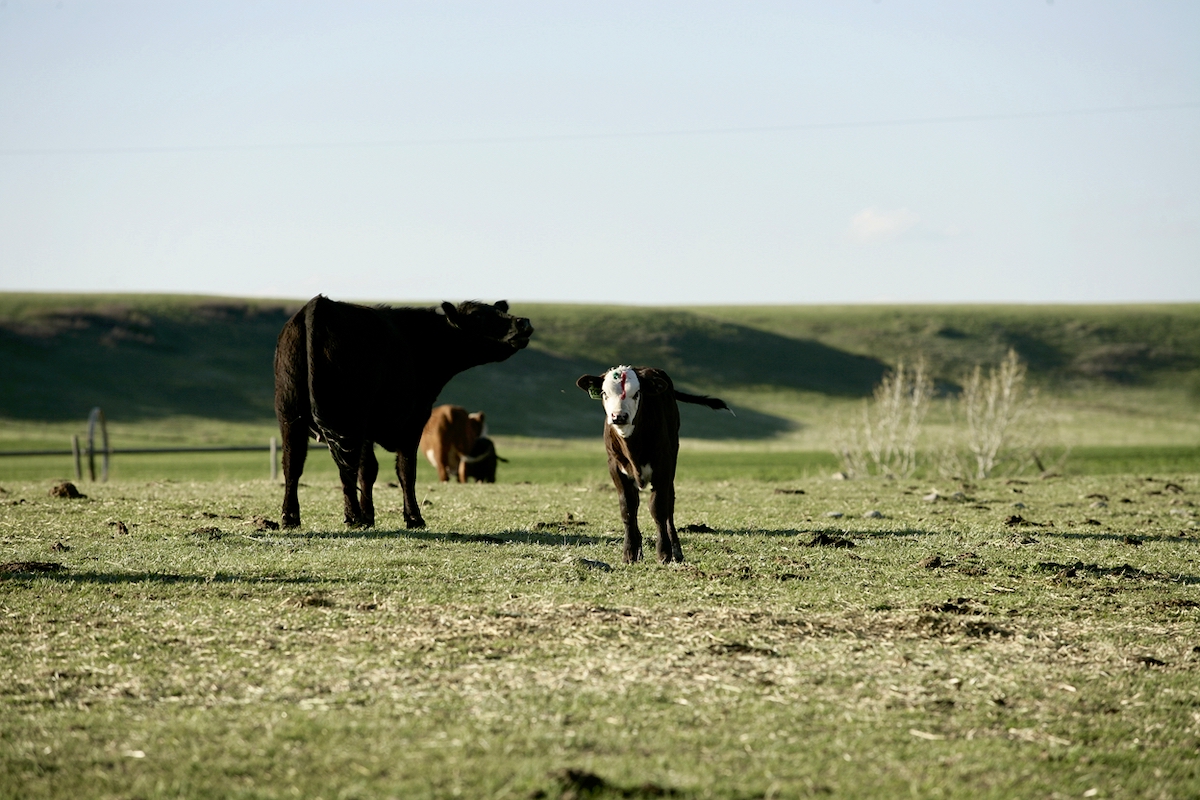
Body condition, nutrition and vaccination for brood cows
One of the remarkable events of the past century related to ranching has been the genetic evolution of brood cows….
We have seen frontline workers at beef processing plants falling ill from COVID-19 and some have even lost their lives, which has had a tremendous impact on the families of these workers and our local communities. Our thoughts are with these families as they mourn the loss of their loved ones.
Processing plants have stepped up to implement protective measures to ensure the health of their workers and resume operations safely. This will help get the beef supply chain moving again so we can continue to feed Canadians and consumers around the globe. I want to express my deep gratitude to these essential workers for what they do every day and recognize them as true partners in Canada’s agri-food sector — they are our local heroes.
Reductions in processing capacity have also resulted in restaurants such as McDonald’s Canada and national grocery chain Sobeys making the decision to temporarily supplement Canadian beef with supply from outside of Canada. As an industry, we understand the constraints they are dealing with in sourcing Canadian beef and appreciate their commitment to resume using 100 per cent Canadian beef as soon as the supply stabilizes. Both companies remain strong partners to the Canadian beef industry.
Since the COVID-19 pandemic hit Canadian soil, the Canadian Cattlemen’s Association (CCA) has developed and communicated meaningful recommendations to the Government of Canada to navigate these unprecedented times. Our staff and board members have engaged with parliamentarians and department officials on these recommendations through virtual fly-ins. Our staff has worked tirelessly to have our message heard by the federal government and by the provincial governments through our members provincially.
On May 5, 2020, Prime Minister Trudeau announced support for Canada’s agri-food sector. While we are disappointed with both the amount of funding overall and the lack of improvement to business risk management programs, we do recognize that this is an initial investment. What was announced was a partial recognition of one of CCA’s three immediate asks. However, the other two components are also critically important to be able to manage through the difficult situation COVID-19 has put our industry in.
This three-legged stool approach of set-aside, livestock price insurance and adaptations to the Advanced Payments Program is a proactive set of tools that together will address the challenges being faced by producers in different parts of industry.
Certainly, the $50 million in funding for the proposed set-aside program is helpful. The CCA is working with the federal and provincial governments to establish this program as quickly as possible.
We are appreciative of the government’s investment of $77.5 million in food processing. Processing shortages are a root cause of the challenges we now face. We know that Eastern Canada needs more processing capacity and that processing facilities across Canada are continuing to make adaptations for COVID-19.
We intend to continue to knock on the doors of parliamentarians and department officials to advocate for the recommendations that work best for beef producers across Canada during these uncertain times. It is also important to focus our energies on how we can move forward as an industry while continuing to engage in discussions with the federal government.
For a long time, the CCA has been advocating for changes to the business risk management programs to improve equity and effectiveness to beef cattle producers. Most of the existing programs do not offer concrete benefits to beef operations.
Our board is very focused on the future and our young producers; therefore, we know that the COVID-19 pandemic is especially detrimental to the financial health of their farming operations. Our asks include: expanding price insurance into the Atlantic provinces, removing the $3 million AgriStability cap, removing the reference margin limit, increasing the reference margin trigger from 70 per cent to 85 per cent, and enhancing the Advance Payments Program (APP) to provide added liquidity and flexibility for cattle producers to market their commodity at the best time and the best price — along with retaining more breeding stock in their cow herd.
We also recognize the importance of working alongside our provincial organizations to communicate the importance of the provincial government in cost-sharing these programs. On May 7, 2020, the Alberta government took the first step in announcing support for the set-aside program. We will continue to engage with the federal government and the provincial governments, through the provincial organizations, to ensure that all beef producers will receive the supports needed due to the extraordinary circumstances caused by the pandemic.
We understand that there is a lot of frustration — I urge you to turn your frustration into action. Please consider writing or emailing your local elected representatives at the federal and provincial government levels to let them know that beef producers require more resources to persevere through COVID-19. The template letter is available on the CCA website.
Finally, it is important that we remember to thank Canadian consumers who may see shortages in beef products on store shelves or see price increases. They continue to choose to feed Canadian beef to their families — for that we are thankful.



